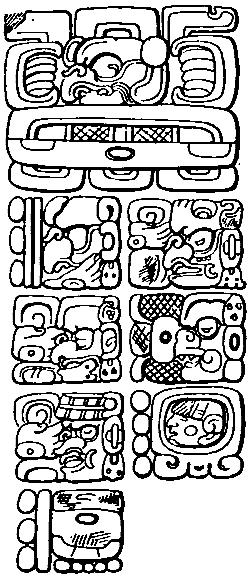Yes, sure, my first response was also ‘not well - dead patients are often difficult test subjects on which to continue clinical trials’.

Thankfully, however, the Canadian Medical Association Journal has looked more deeply into this most pressing of issues.
In fact, as the paper’s introduction states:
There is a great deal of speculation concerning the end of the world in December 2012, coinciding with the end of the Mesoamerican Long Count calendar (the “Maya calendar”). Such an event would undoubtedly affect population survival and, thus, survival outcomes in clinical trials. Here, we discuss how the outcomes of clinical trials may be affected by the extinction of all mankind and recommend appropriate changes to their conduct. In addition, we use computer modelling to show the effect of the apocalypse on a sample clinical trial.
They go on to say, in effect, as part of Good Clinical Practise guidelines, research methods need to updated to expedite all current clinical research, lest the research results and analysis not be of benefit to anyone.
The full paper is linked to at the bottom of this piece - it’s open access, and an hilarious read. Titles include “Stuff we did”, “Stuff we found out”, “Chit chat” and “Mostly true background”. Those of us used to wading through research papers will, of course, recognise their more prosaic analogues (Methods, Results, Discussion and Background).
Their results found that for the control group, death continued as usual but for the obliteration/end of the world group, well, things were a bit different!
For the control group, death occurs at a predictable and fairly uniform rate. However, MaD leads to a statistically significant, and clinically relevant, difference in survival between the control and obliteration groups (we’re pretty sure that, were it calculated, p would definitely be something really significant, and certainly less than 0.05). Oddly, despite censoring for major known sources of bias (e.g., astronauts currently aboard the international space station, as well as zombies, the undead, the Grateful Dead, Dungeons and Dragons players, men who have read Fifty Shades of Grey and other similar beings likely to be unaffected by the apocalypse), the obliteration group does not fall to 0. We have dubbed this slow rise in the obliteration curve the “zombie repopulation.”
There’s lots more detail, of course, including looking into the effect of the end of the world on a trial of two different drugs, and thEre are graphs and everything! Clearly excellent science :)
Their conclusion?
If we have been thinking clearly, then it is apparent that the end of the world will have catastrophic effects on statistical analyses of survival outcomes. We therefore recommend that all clinical trials should stop immediately, as MaD will negate all potential trial results.
BUT really - go and enjoy the full paper - it’s a lovely piece of satire :)
I’m off to Canada until early Jan, but will resume blogging on my return. In the meantime, enjoy the End of Times and, should that not happen, have an excellent holiday season!
—-
From those of us for whom it’s already midday on Dec 21st, well, we’re still here!
Also, it may be worth pointing out that this notion of the End Times came from us, not the Mayans.
—-
Reference:
Wheatley-Price P, Hutton B, & Clemons M (2012). The Mayan Doomsday’s effect on survival outcomes in clinical trials. CMAJ : Canadian Medical Association journal = journal de l’Association medicale canadienne, 184 (18), 2021-2 PMID: 23230049